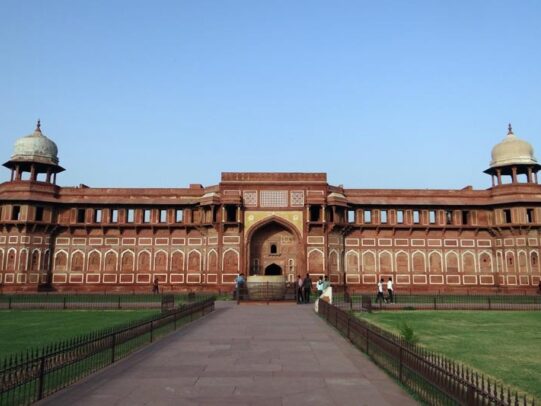The North Indian state of Rajasthan last week approved an anti-conversion law that makes it mandatory for people wishing to convert to another religion to inform authorities at least two months in advance.
Under the law, the victims of unlawful conversions — those based on misleading information, fraud, force, or undue influence — can be compensated up to 500,000 Indian rupees (about $590), while offenders could get jail terms ranging from up to 10 years. Rajasthan will become the 12th Indian state to have an anti-conversion law.
The bill, known as the Rajasthan Prohibition of Unlawful Conversion of Religion Bill 2024, must be passed by the state legislature during the winter assembly session to become law.
The state of Rajasthan is ruled by the Hindu nationalist Bharatiya Janata Party (BJP), which also is the ruling party at the federal level. This could make it easier and faster for this anti-conversion bill to become law.
Offenses under the bill are classified as non-bailable and cognizable, and the bill includes provisions for varying punishments based on the nature of the offense.
The bill aims to protect vulnerable groups, with stricter penalties for the conversion of minors, women, and individuals from scheduled castes and scheduled tribes. It also stipulates that any individual who wishes to convert to another religion must notify the district authority at least 60 days in advance. Then, a notice of 30 days must be given for any ceremony for the conversion.
Then again, after the conversion, the person concerned must inform the collector through an affidavit within 60 days.
These three layers of the conversion process make it formidable and controversial and could also likely contradict the country’s constitutional right to freedom of religion.
Article 25 (1) in India’s Constitution states, “Subject to public order, morality, and health and to the other provisions of this Part, all persons are equally entitled to freedom of conscience and the right freely to profess, practice and propagate religion.”
Rajasthan’s anti-conversion bill allows for imprisonment between two to 10 years and a fine of 25,000 Indian rupees (about $300) for converting minors, women, or people from the vulnerable Scheduled Castes (SC) and Scheduled Tribes (ST) communities. The imprisonment could extend to three to 10 years and a fine of 50,000 Indian rupees (about $590) for large-scale conversions.
The bill also states that any marriage under duress or through inducements is liable to be annulled. This clause is particularly aimed at curbing inter-religious marriages, especially between Hindus and Muslims.
Alongside Rajasthan, the following are the other states that presently have anti-conversion laws: Arunachal Pradesh, Chhattisgarh, Gujarat, Haryana, Himachal Pradesh, Jharkhand, Madhya Pradesh, Odisha, Uttarakhand, and Uttar Pradesh.

